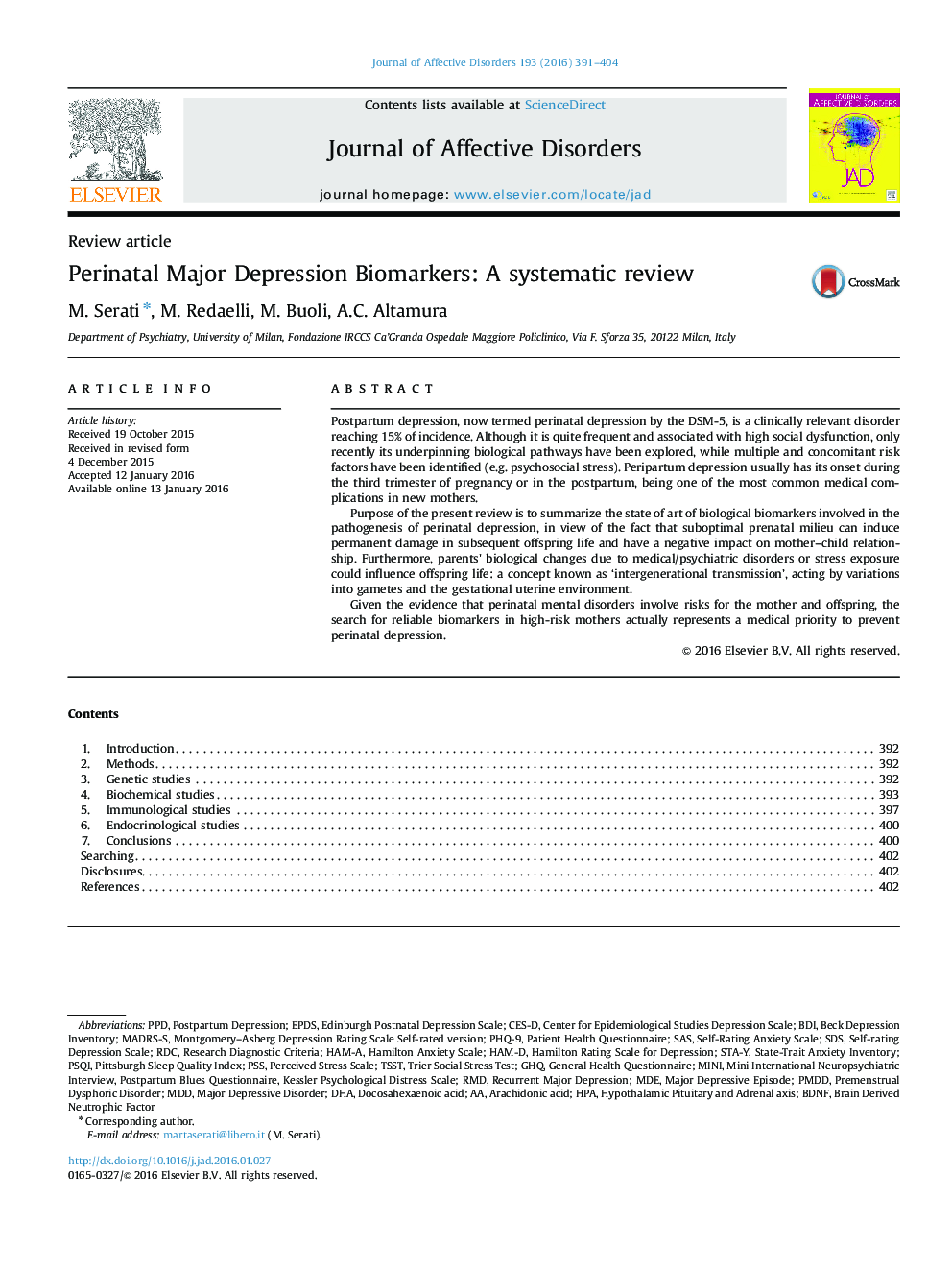| Article ID | Journal | Published Year | Pages | File Type |
|---|---|---|---|---|
| 6230513 | Journal of Affective Disorders | 2016 | 14 Pages |
â¢Postpartum depression (PPD), now termed perinatal depression by the DSM-5, is a common medical complication.â¢The majority of available data on the pathophisiology of PPD have been conducted recently. Most of them deal with endocrinological and immunological biomarkers, while only few biochemical/genetic biomarkers have been investigated.â¢Some robust associations with an increased risk of peripartum depression have been reported with HPA axis, hormonal changes, IL-6, vitamin D, fatty acid, BDNF.â¢Affective disorders in pregnant women has to be detected as soon as possible and treated with focused therapies in order to reduce the impact of PPD on offsprings.
Postpartum depression, now termed perinatal depression by the DSM-5, is a clinically relevant disorder reaching 15% of incidence. Although it is quite frequent and associated with high social dysfunction, only recently its underpinning biological pathways have been explored, while multiple and concomitant risk factors have been identified (e.g. psychosocial stress). Peripartum depression usually has its onset during the third trimester of pregnancy or in the postpartum, being one of the most common medical complications in new mothers.Purpose of the present review is to summarize the state of art of biological biomarkers involved in the pathogenesis of perinatal depression, in view of the fact that suboptimal prenatal milieu can induce permanent damage in subsequent offspring life and have a negative impact on mother-child relationship. Furthermore, parents' biological changes due to medical/psychiatric disorders or stress exposure could influence offspring life: a concept known as 'intergenerational transmission', acting by variations into gametes and the gestational uterine environment.Given the evidence that perinatal mental disorders involve risks for the mother and offspring, the search for reliable biomarkers in high-risk mothers actually represents a medical priority to prevent perinatal depression.
